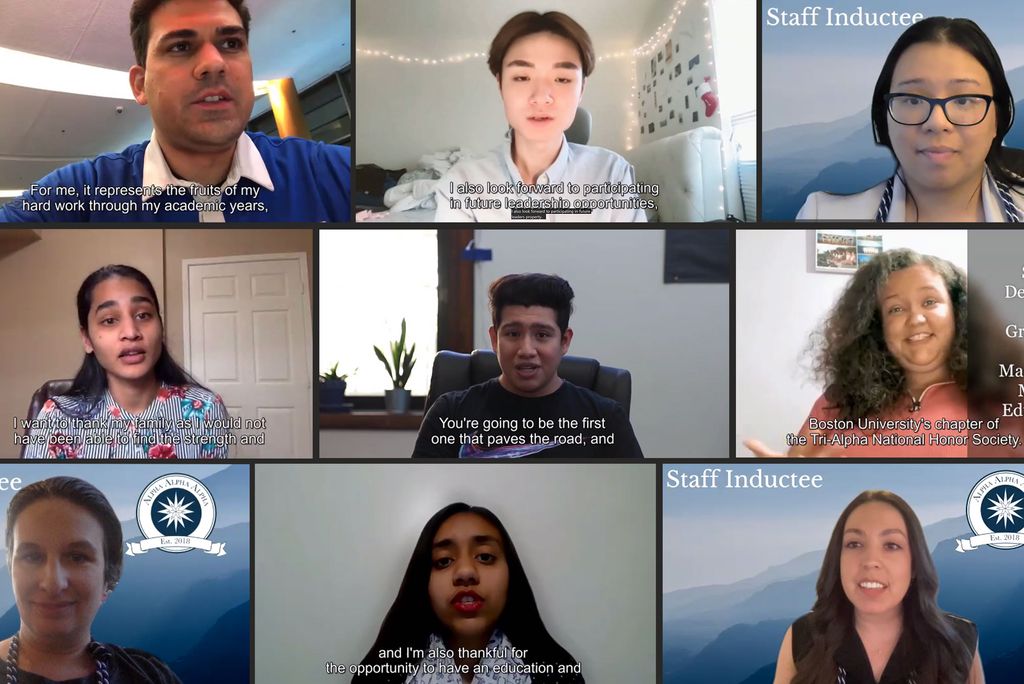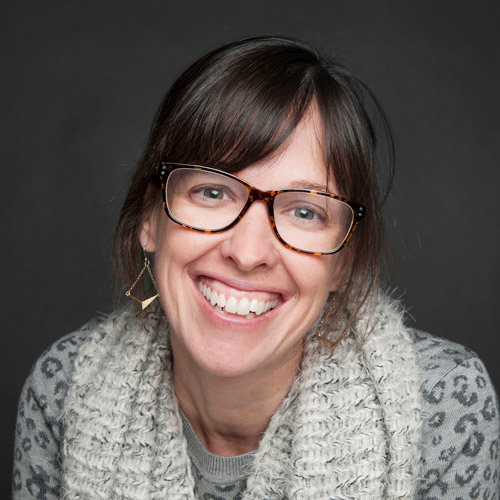“This Is My Stepping-stone.” 553 BU First-Generation College Students Welcomed into Honor Society
“This Is My Stepping-stone.” 553 BU First-Generation Students Welcomed into Honor Society
BU Newbury Center ceremony celebrates inaugural members, their determination, contributions blazing new trails
Meet six first-generation college students at Boston University and hear their stories. They were among 553 students, faculty, and staff inducted April 26 as the inaugural members of BU’s Alpha Alpha Alpha honor society for first-gen students.
They didn’t grow up assuming they would go to college. They didn’t have private SAT tutors or coaches to guide them through the application process or parents who could share their own college experiences with them. They had to figure things out on their own, as the first in their family to attend a four-year college in the United States.
“I wouldn’t be where I am today if it weren’t for Posse,” says Cheyenne Bailey (SPH’21), who won a Posse Foundation academic and leadership scholarship to a small liberal arts college, and who has been chosen as the student speaker for her School of Public Health graduation ceremony.
First-gen students know all about imposter syndrome, that feeling that everyone except you gets the hidden code of college—faculty office hours, creating a social life with ease, knowing which courses to take, jumping at study abroad opportunities.
“My first week at Georgetown, I went to the resident chaplain, and I cried,” says Eduardo Gonzalez (LAW’21). “I told her they had made a mistake admitting me because I didn’t understand anything in my classes.”
The chaplain assured Gonzalez that he did belong at Georgetown, and now he is about to graduate from the School of Law, where he is BU Law Review articles editor. He starts work this fall as a junior associate at WilmerHale’s Boston office.

On April 26, Gonzalez and Bailey were among 553 members of the Boston University community—491 current first-gen students (undergrads and graduate and professional degree students), plus 62 faculty and staff—inducted into BU’s inaugural chapter of the Alpha Alpha Alpha honor society for first-generation students.
Maria Dykema Erb, inaugural director of BU’s Newbury Center, which helps first-generation students take full advantage of the college experience, hosted the virtual ceremony (the center was created with a $6 million endowment from the recently shuttered Newbury College). She told the inductees that they are “outstanding leaders whose contributions to Boston University, the greater Boston community, and beyond are too numerous to count.”
“Some of you have worked full-time while going to school,” said Erb, who was already a Tri-Alpha member. “Some of you have received competitive national and international scholarships,” and others, she said, have won Fulbrights, Gates Millennium Scholar awards, and National Science Foundation fellowships.
BU President Robert A. Brown congratulated the inductees and spoke about his own experience—and that of his wife, Beverly Brown—as first-generation college students from their high school in San Antonio.
“I was raised by a single mother who never actually visited the University of Texas at Austin, where I was an undergraduate,” Brown said. “I believe she would have been very content for me to pursue the job in a grocery chain that I had cultivated all through high school.
“In my time, first-generation students were the rule, not the exception. Today things are different. Today there is the assumption that a young person will choose to attend college, which translates into an expectation embedded in the child at an early age.”
For many first-gens, Brown said, “the drive for education must come totally from within.” And first-gens experience college differently, he said. As an example, he cited data showing that first-gen students at BU work an average of 20 hours a week versus 12 for their counterparts whose parents attended college.
“The virtues you have cultivated will serve you well as you take on new challenges,” the president said. “Our community, our campus, is enriched by having you with us.”



Comments & Discussion
Boston University moderates comments to facilitate an informed, substantive, civil conversation. Abusive, profane, self-promotional, misleading, incoherent or off-topic comments will be rejected. Moderators are staffed during regular business hours (EST) and can only accept comments written in English. Statistics or facts must include a citation or a link to the citation.